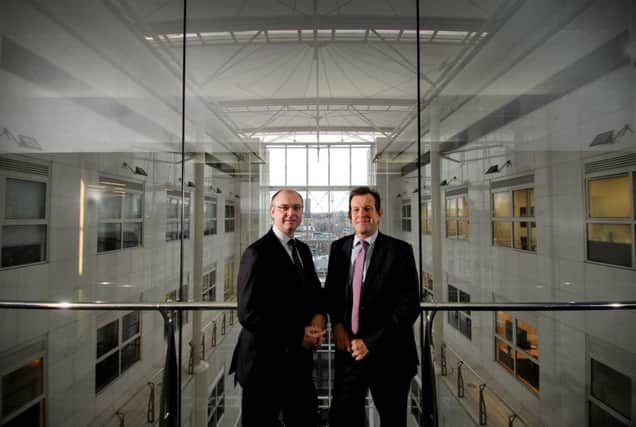Bernard Ginns: Man is born free and everywhere he is in red tape from the EU


Perhaps business leaders are too focused on the present and the future to concern themselves with long-dead writers of the past, particularly hypochondriac French philosophers.
A gold star then for Nick Owen, the UK chairman of Deloitte, for demonstrating some intellectual range in bringing up Monsieur Rousseau in response to a question about the European Union.
Advertisement
Hide AdAdvertisement
Hide Ad“For me, it comes down to a political philosophy point at the start. There is a fairly well established set of thinking in political philosophy called the social contract.
“So why does anyone choose not to wander around the countryside picking their fruit and spearing their animals and looking after themselves?
“Why do they form aggregations? Because they feel what they give up is outweighed by what they get as being a member of something bigger.”
The Social Contract, published in 1762, argued that people gave up individual freedoms in the state of nature in exchange for mutual protection and government.
Advertisement
Hide AdAdvertisement
Hide AdIts publication helped inspire revolutions across Europe. A British exit from the EU might inspire some more.
Jean-Jacques (1712-1778) was quite a wit in his day and came up a number of bon mots:
“People who know little are usually great talkers, while men who know much say little.”
This is clearly as true today as it was then, though I shall be naming no names.
Advertisement
Hide AdAdvertisement
Hide Ad“The world of reality has its limits; the world of imagination is boundless.”
A common world view that many of the most successful entrepreneurs adhere to.
“Man is born free and everywhere he is in chains.” Or red tape, emanating from bureaucrats in Brussels.
“Happiness: a good bank account, a good cook, and a good digestion.” And good broadband.
Advertisement
Hide AdAdvertisement
Hide Ad“It is too difficult to think nobly when one thinks only of earning a living.” I knew my philosophy degree would come in useful one day.
Back to Europe. Martin Jenkins, the senior partner of Deloitte in Yorkshire and the North East, summed up the challenge facing those arguing for Britain to remain part of the European Union.
Basically, their argument isn’t as new and sexy.
Mr Jenkins also said that business has to put its head above the parapet if it wants to be heard.
He added: “Business has to be willing to get on stage and have a voice and express a point of view and then it’s having a message that’s going to connect and resonate beyond the natural business environment.
Advertisement
Hide AdAdvertisement
Hide Ad“It’s also complicated by the whole business trust issue. The real key to having the substance of debate in the run-up to the EU referendum is about making sure that the arguments and economic arguments are brought to the fore in a way that engages people because they trust where those messages are coming from and they are explained in a way which is meaningful and sufficiently straight forward for people to connect with.
“One of the challenges for the Stronger In Europe campaign is that the Vote Leave messages can actually be incredibly simple and straight forward. The arguments for staying within the EU are more complicated.”
The problem with businesses taking a stand and expressing a view on the EU is that inevitably there will be those taking potshots so they should steel themselves for some flak.
We all saw how nasty in got in the lead up to the Scottish referendum.
Advertisement
Hide AdAdvertisement
Hide AdMany businesses ended up staying out of that argument for fear of getting dragged into a bad-tempered political fight.
The economic argument for Scottish independence didn’t get much scrutiny as a consequence.
Given the collapse in the price of oil, the Scots are fortunate that they voted for the union.